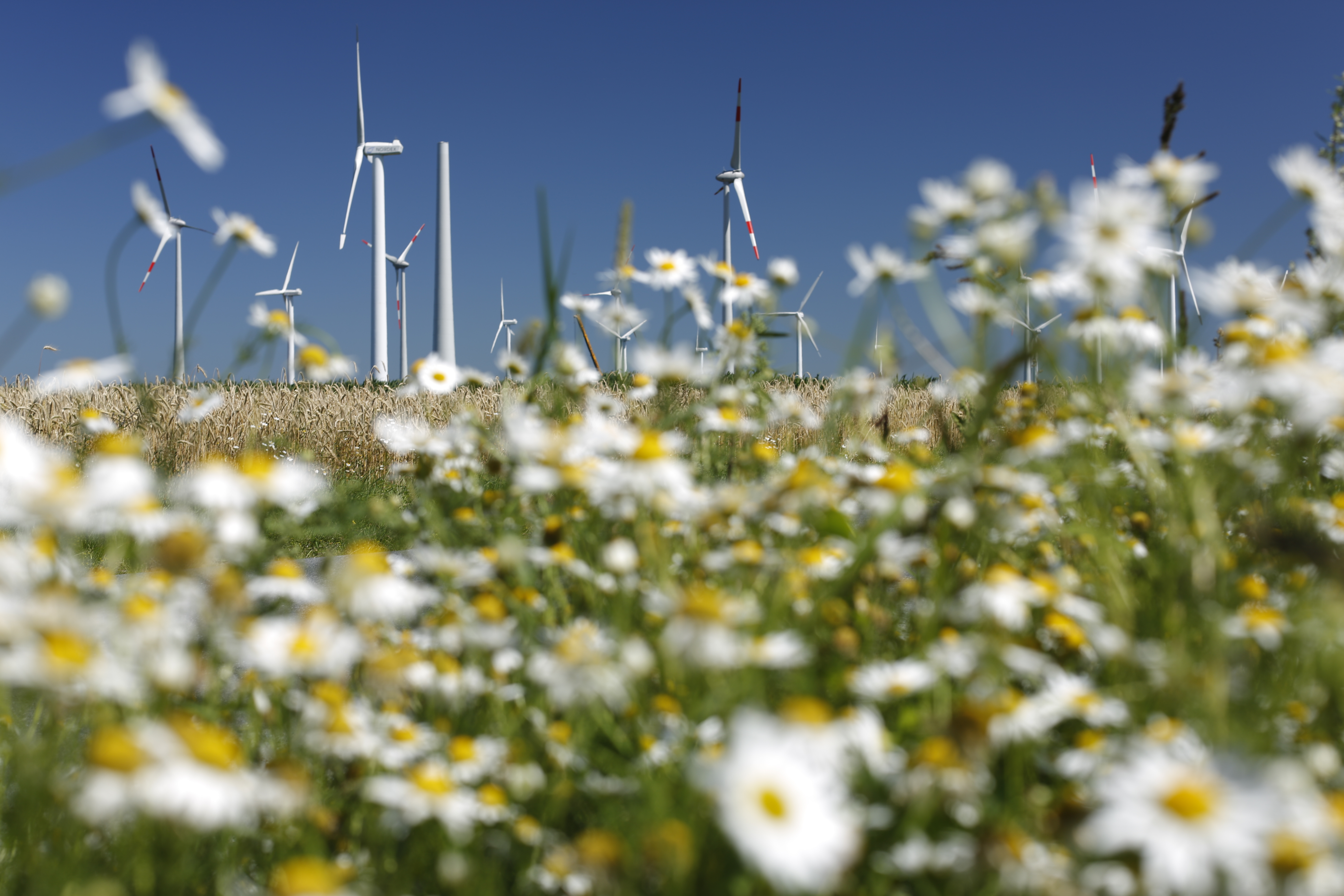Germany to pull forward target date for climate neutrality to 2045
The German government will propose to significantly raise the country’s greenhouse gas reduction targets and will aim for climate neutrality as early 2045, said finance minister Olaf Scholz and environment minister Svenja Schulze in Berlin. Within days of Germany’s Constitutional Court ruling parts of the country’s climate law insufficient, the coalition partners attempt to present their solution to the judges’ criticism.
Schulze said the government coalition of her Social Democrats (SPD) and chancellor Angela Merkel’s conservatives (CDU/CSU) has reached an agreement, and the cabinet will present a reform text for the country’s Climate Action Law next week. This will propose to
- reduce greenhouse gas emissions by 65 percent by 2030 (current target: 55%)
- reduce emissions by 88 percent by 2040 (currently no target)
- reach greenhouse gas neutrality by 2045 (Germany currently aims for 2050)
“It is important for the future of our country that we now get serious about the CO2 reduction targets, but also about the expansion of the infrastructure that is indispensable for this,” said Scholz. “Germany's entire future economic performance depends on more renewable electricity,” he said. “This is Germany's central growth and future issue. It must be answered now, and it must be answered seriously.” He added that the Constitutional Court’s “cool ruling” had made possible “a new push” and said that the new targets will be achievable.
We will do everything we can to achieve the goal of climate neutrality as early as 2045. To achieve this, we will of course have to set up and implement additional measures.
Chancellor Merkel confirmed the decision. “Within the government we debated today how to very quickly implement the ruling of the Constitutional Court,” said the chancellor during a virtual meeting on transatlantic cooperation, and confirmed the targets. To reach climate neutrality already by 2045, “we will of course have to set up and implement additional measures,” she added.
Environment minister Schulze called the new targets “really ambitious” and said they presented “a fair offer to the younger generation.” She added that the reformed law would ensure the implementation of a solution to the court’s criticism.
In a decision widely hailed as historic, Germany's highest court ruled that the government's climate legislation lacks detail on emission reduction targets beyond 2030. The decision “significantly strengthened” climate action by ruling that if the government fails to protect the climate, it could violate (young) citizens’ fundamental rights, legal experts said. The court had cautioned that future generations should not be overly burdened by irreversibly offloading major emission reduction goals onto periods after 2030. Youth activists, who had lodged the complaint to force the government to do more to mitigate climate change, said the ruling was a timely decision ahead of Germany's federal election this year.
German voters will head to the polls in September to elect the next government that would shape the country’s path towards climate neutrality, and the first that will not be led by “climate chancellor” Merkel after her 16 years in office. Activists have long sought to make the 2021 national vote a “climate election,” but the COVID-19 crisis is set to remain at or near the top of the agenda as well.
Germany’s current governing coalition of chancellor Angela Merkel’s conservatives (CDU/CSU) and the Social Democrats (SPD) introduced the country’s first major climate law with binding emissions reduction targets for the 2020s as part of a comprehensive package of measures in 2019. The package was meant to ensure that Germany reaches its 2030 targets, but the climate action law also included a line on “pursuing” the long-term target of greenhouse gas neutrality by 2050. However, it postponed the decision on emissions reduction targets post-2030 to a later date.
“Alarmed by the ruling of the Federal Constitutional Court, the German government is now lapsing into climate target actionism,” commented Thilo Schaefer of the German Economic Institute (IW Köln). He said that Germany’s more ambitious obligations were embedded in the European Green Deal and emissions from industry and energy capped by the European Emissions Trading System. Instead of setting new targets, the government should focus on the best ways to achieve them, including giving money for the expansion of renewables, promoting investments in climate-friendly technology, aligning public procurement with climate criteria, building infrastructure and dismantle regulatory barriers. “This is the only way German companies can remain competitive. Pure climate actionism, on the other hand, is nonsense: in climate policy, it is not the one with the most ambitious goals that wins, but the one with the best approaches for action.”
The government wants to finalise the reform before the election in September, but it is not yet clear whether parliament will approve it in time. It also remains to be seen whether a new government, possibly including the Green Party, will want to adapt climate targets yet again once in office. The Green Party is leading many national polls and with the party's candidate Annalena Baerbock even has a realistic chance at the chancellery.

